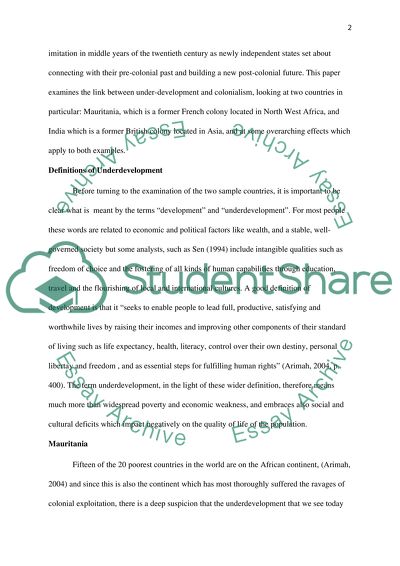Cite this document
(“Whether underdevelopment is a consequence of colonial legacy Essay”, n.d.)
Whether underdevelopment is a consequence of colonial legacy Essay. Retrieved from https://studentshare.org/history/1440853-whether-underdevelopment-is-a-consequence-of-colonial-legacy
Whether underdevelopment is a consequence of colonial legacy Essay. Retrieved from https://studentshare.org/history/1440853-whether-underdevelopment-is-a-consequence-of-colonial-legacy
(Whether Underdevelopment Is a Consequence of Colonial Legacy Essay)
Whether Underdevelopment Is a Consequence of Colonial Legacy Essay. https://studentshare.org/history/1440853-whether-underdevelopment-is-a-consequence-of-colonial-legacy.
Whether Underdevelopment Is a Consequence of Colonial Legacy Essay. https://studentshare.org/history/1440853-whether-underdevelopment-is-a-consequence-of-colonial-legacy.
“Whether Underdevelopment Is a Consequence of Colonial Legacy Essay”, n.d. https://studentshare.org/history/1440853-whether-underdevelopment-is-a-consequence-of-colonial-legacy.


